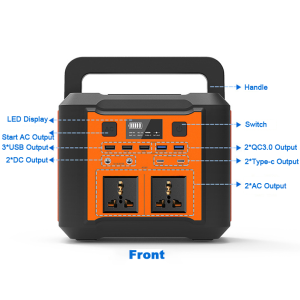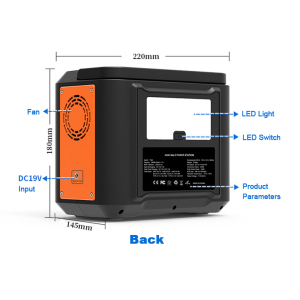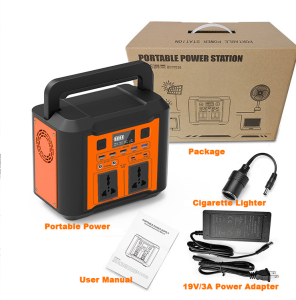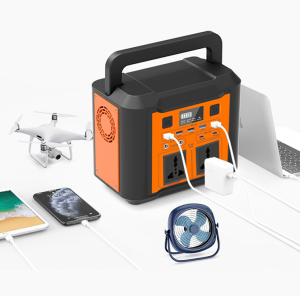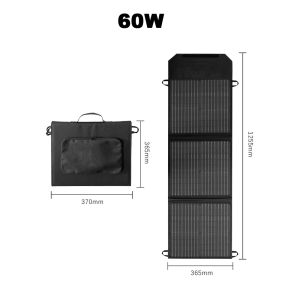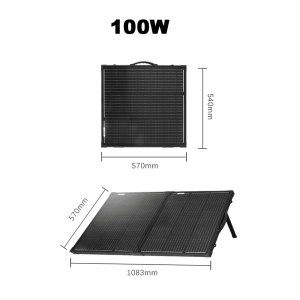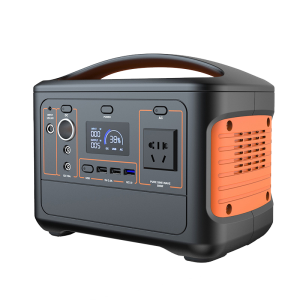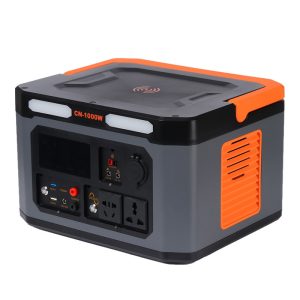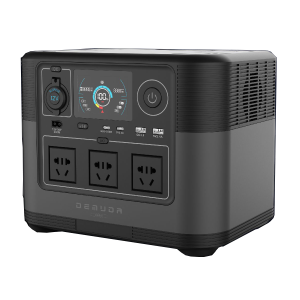More
Considering Limitations: Exploring the Disadvantages of 300W Portable Energy Solutions
Considering Limitations: Exploring the Disadvantages of 300W Portable Energy Solutions
Introduction:
300W portable power stations have gained popularity as compact and versatile power solutions for on-the-go needs. These devices provide a convenient source of power for charging electronics and running small appliances. However, it’s essential to understand their limitations and potential drawbacks before making a purchase decision. In this blog post, we will explore the disadvantages of 300W mobile electricity stations, helping you make an informed choice and understand the challenges associated with these devices.
-
Limited Power Capacity:
One of the primary disadvantages of 300W portable energy storage systems is their limited power capacity. While they are suitable for charging small electronics like smartphones, tablets, and laptops, their capacity may not be sufficient for powering higher-wattage devices or appliances. Running power-hungry devices such as large televisions, refrigerators, or power tools may exceed the power station’s capabilities. It’s crucial to assess your power requirements and ensure that the power station’s capacity aligns with your intended usage to avoid overloading or underperforming.
-
Shorter Runtime:
300W portable battery stations typically have smaller batteries, which translates to a shorter runtime. The runtime of these devices depends on various factors, including the power consumption of the connected devices and the power station’s battery capacity. Running multiple devices simultaneously or devices with higher power demands can drain the battery quickly, resulting in a shorter runtime. It’s important to manage your power usage and plan accordingly to ensure you have enough power for your intended activities or duration of use.
-
Limited Charging Options:
While 300W portable power packs offer versatility in charging small devices, they may have limited options for higher-power appliances. These power stations often have limited AC outlets and may not include specific ports for high-power appliances or devices. It’s important to check the specifications and ensure compatibility with your specific charging needs before purchasing a 300W power station. Depending on your requirements, you may need to consider higher-capacity power stations with more robust charging options.
-
Longer Recharging Time:
300W compact power supplies require recharging after use or when the battery is depleted. The recharging time can be relatively longer compared to higher-capacity power stations. This is due to the smaller battery capacity and charging capabilities of these devices. It’s important to consider the recharging time and plan accordingly, especially during extended outdoor trips or situations where a quick recharge is necessary. Understanding the recharging time can help you manage your power needs effectively and avoid unexpected downtime.
-
Limited Compatibility with High-Wattage Appliances:
As mentioned earlier, 300W mobile power units may not be suitable for running high-wattage appliances. It’s crucial to evaluate the power requirements of your devices and appliances and ensure they fall within the power station’s capacity. Attempting to power devices that exceed the power station’s capabilities can result in underperformance, potential damage to the power station, or even a safety hazard. It’s essential to assess the power needs of your appliances and select a power station with the appropriate wattage capacity.
Conclusion:
While 300W portable power stations offer convenience and versatility, they also have limitations that should be considered. The limited power capacity, shorter runtime, limited charging options, longer recharging time, and compatibility restrictions with high-wattage appliances are important factors to keep in mind. It’s essential to evaluate your power requirements, assess the potential limitations of a 300W power station, and determine if it aligns with your specific needs. Understanding these disadvantages will help you make an informed decision and select the right power solution for your portable power requirements.


